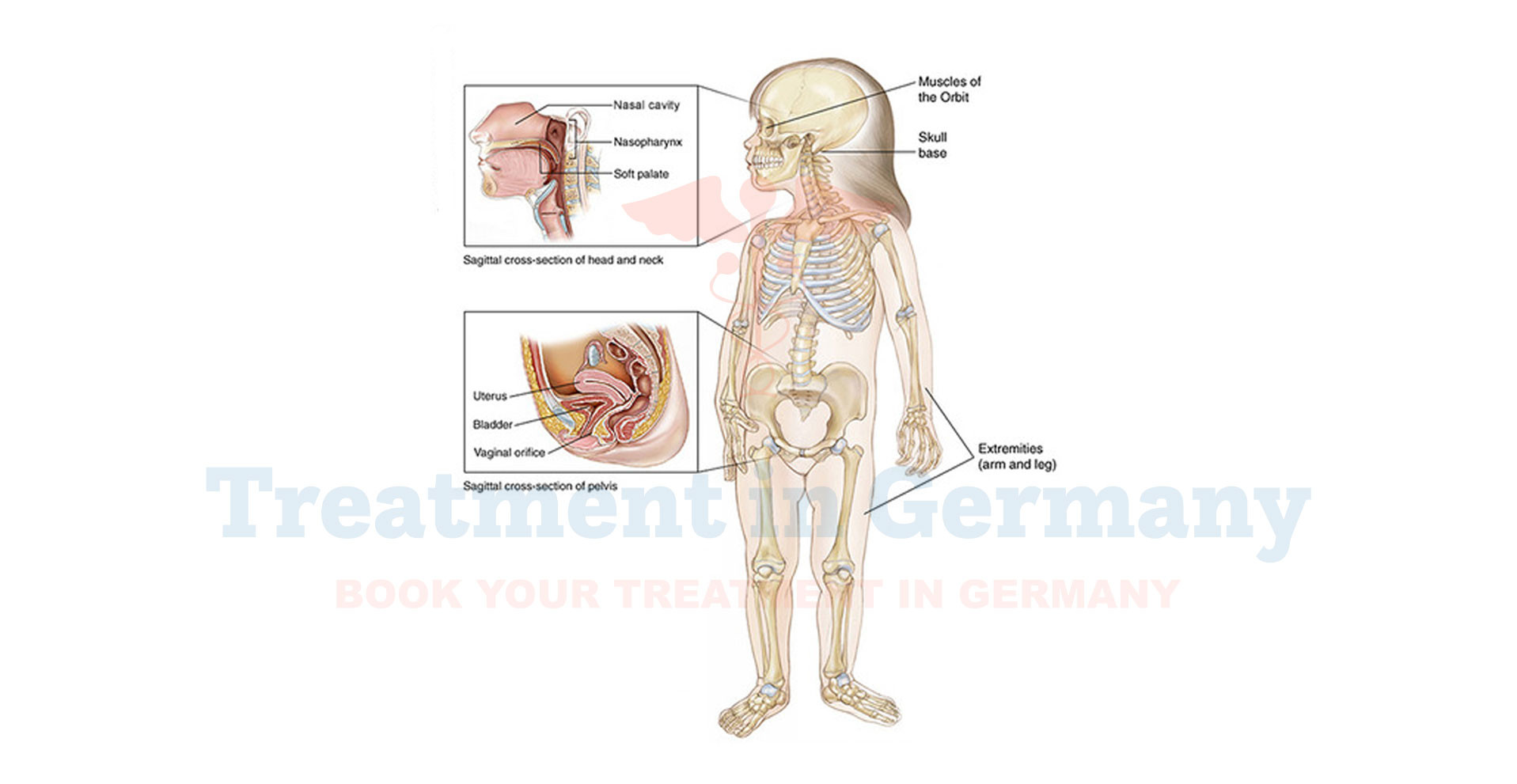What is Rhabdomyosarcoma?
Rhabdomyosarcoma is a rare type of cancer that primarily affects children and adolescents, though it can also occur in adults. It originates in the soft tissues of the body, particularly in muscles that are supposed to help move the body.
This cancer starts in the cells that would normally develop into skeletal muscles, which is why it’s called rhabdomyosarcoma. The disease can manifest in various parts of the body, including the head and neck, the genitourinary tract, or the limbs.
Side Effects of Rhabdomyosarcoma
The impact of rhabdomyosarcoma varies depending on its location and stage. Common side effects and symptoms may include:
- Pain or Swelling: Tumors can cause pain or noticeable swelling in the affected area.
- Functional Impairment: Depending on the tumor’s location, it might affect the movement or function of nearby structures.
- Systemic Symptoms: Symptoms like fatigue, unexplained weight loss, and fever may occur.
- Obstructive Symptoms: If the tumor grows large, it might press against other organs, leading to issues such as difficulty breathing or urination problems.
How is Rhabdomyosarcoma Diagnosed?
Diagnosing rhabdomyosarcoma typically involves a series of steps:
- Medical History and Physical Examination: Your doctor will begin with a thorough review of your medical history and a physical examination to assess any symptoms and identify any lumps or abnormalities.
- Imaging Tests: Tests like X-rays, CT scans, MRI scans, or PET scans are used to visualize the tumor and determine its size, location, and extent.
- Biopsy: A biopsy, where a sample of the tumor is taken and examined microscopically, is crucial for confirming the diagnosis. This can be done through a needle biopsy or a surgical procedure.
- Blood Tests: While not specific for rhabdomyosarcoma, blood tests can help evaluate overall health and support the diagnostic process.
Potential Treatment of Rhabdomyosarcoma
Treatment for rhabdomyosarcoma is highly specialized and depends on factors such as the tumor’s location, size, and stage, as well as the patient’s overall health. Common treatment options include:
- Surgery: Removing the tumor surgically is often the primary treatment if the cancer is localized and resectable.
- Chemotherapy: This treatment uses drugs to target and kill cancer cells throughout the body and is often used in combination with other treatments.
- Radiation Therapy: High-energy radiation is used to target and kill cancer cells, particularly if the tumor cannot be entirely removed by surgery or if it has spread.
- Targeted Therapy and Immunotherapy: These newer treatments are tailored to target specific cancer cell mechanisms or to boost the body’s immune response against cancer cells. They might be used in clinical trials or specialized treatment plans.
Seeking Treatment in Germany
Germany is renowned for its advanced medical care, especially in oncology. If you are considering treatment for rhabdomyosarcoma, Germany offers state-of-the-art facilities and experienced specialists.
German hospitals and cancer centers are equipped with the latest technology and treatment methods, and many institutions are involved in cutting-edge research and clinical trials.
For the best outcomes, it’s essential to consult with a specialized oncologist who can create a personalized treatment plan tailored to your needs. If you need assistance finding a specialized center or navigating the healthcare system in Germany, support services are available to guide you through the process.


.webp)
 (1).webp)

.webp)
 (1).webp)


.webp)
 (1).webp)

.webp)
 (1).webp)
